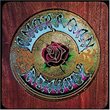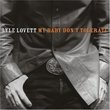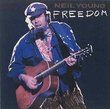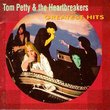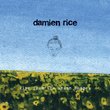| All Artists: Grateful Dead Title: From the Mars Hotel [MFSL Audiophile Original Master Recording] Members Wishing: 12 Total Copies: 0 Label: Mobile Fidelity Album Type: HiFi Sound Genre: Pop Style: Number of Discs: 1 SwapaCD Credits: 1 UPC: 015775183025 |
Search - Grateful Dead :: From the Mars Hotel [MFSL Audiophile Original Master Recording]
![From the Mars Hotel [MFSL Audiophile Original Master Recording]](https://nationalbookswap.com/cd//l/29/9329/39329.jpg) | Grateful Dead From the Mars Hotel [MFSL Audiophile Original Master Recording] Genre: Pop Mars Hotel is one of the most interesting and imaginative, and perhaps the greatest of the Dead albums. The main reason is that it contains "Unbroken Chain," which is probably the best song they ever did. Even non-Deadhead... more » |
Larger Image |
CD DetailsSynopsis
Product Description Mars Hotel is one of the most interesting and imaginative, and perhaps the greatest of the Dead albums. The main reason is that it contains "Unbroken Chain," which is probably the best song they ever did. Even non-Deadheads will appreciate Mars Hotel, which is for one and all....Track List:.... 1. U.S. Blues 2. China Doll 3. Unbroken Chain 4. Loose Lucy 5. Scarlet Begonias 6. Pride Of Cucamonga 7. Money Money 8. Ship Of Fools Similar CDs
Similarly Requested CDs
|
CD ReviewsGratefully Dead In The 70's Andre S. Grindle | Brewer Maine | 06/09/2009 (5 out of 5 stars) "Making a comeback after having a musical experience most would envy in the 60's would've been unthinkable for most bands and performers. The Dead did this the previous year with the more somber jazz and folk inflected Wake of the Flood.The little whiff of soul and that touch of funk really began to find it's own here as the band beefed up their sound again and really rode with high energy every step of the way.The main reason here is more of an emphasis on uptempo tunes."U.S. Blues" is a scorcher and as great a way to open an album as I can think-nice bluesy rocker for them."Unbroken Chain" is truly one of the most musically interesting pieces here-fooling you into thinking your in for a mellow folky tune again until these fairy tale firework sounding synthesizers seem to fall from the sky onto the song and the whole thing builds into this burning latin-rock type jam."Loose Lucy" is,as far as this album is concerned the most outright funky thing on it.It's funny how when some rock musicians go for funk it ends up sounding more like dressed up blues but in this case it goes out the box into....something kind of all it's own.The festive "Scarlet Bigonias" is a song a lot of people come into this album for and it deserves it:the great festive rhythms and Jimmy Buffet/island rock flavor oozes out of every corner.In keeping with the way the Dead entered into the 70's they give us the upbeat country rocker "Pride Of Cucamonga".Yes so it's very twangy but it all sounds so good everything on it really works."Money Money" is a really hard rocker and the tale of a cash craving lady is also augmented by clever little melodic referrences to Barret Strongs similarly titled Motown classic.The softer parts of the album come by way of the organ led "China Doll" and the story and the poetic "Ship Of Fools" to close everyting out.You also get 7 bonus cuts here,all either live or outtake versions of songs from this album or close to the period.Nonetheless this is definately a high water mark for the Dead in the 70's and really baught back lots of energy into their music and general flavors." Mars Hotel Original Master Recording CD August West | San Diego, CA United States | 06/17/2009 (4 out of 5 stars) "Pro: Sounds a lot like my old LP Con: My old LP does not sound as crisp as the Rhino remaster. I'm keeping both but the Rhino is what I would recommend for overall better sound quality and MUCH better value. " One of the most overlooked gems in the Dead's studio catalog Timothy Husbands | Florence, MS United States | 06/22/2009 (5 out of 5 stars) "By 1973, the Dead were doing what only a few other bands (the Moody Blues among them) had only idly spoken about or attempted: They were running their own record label, releasing exactly what they wanted to, and answering to nobody but themselves. The upside to this argument is, of course, the high level of personal and artistic freedom it allowed the Dead. However, the downside was the headaches that came with running said label day to day and actually getting the records out there and promoting them. Three albums were released on Grateful Dead Records, all of which have moments of true brilliance on them: Wake of the Flood, From the Mars Hotel, and Blues for Allah. There laid the rub: How was a band which was said to stand for everything anti-Establishment supposed to enter the material world of record sales and promotion and survive? This is most likely why the three GDR albums are much less known to the average listener. They simply weren't promoted as well as they might have been on Warner Brothers or Arista. However, each of these albums bequeathed many a tune to the setlists of years to come, and other songs that fans begged the band to play, but which were simply too unwieldy at the time. From the Mars Hotel was the first of these albums I heard at a friend's house one night, and it has kept a treasured place in my stack of Dead memories to this day. Only one song seems to me to be out of place: "Money Money". I still cannot figure out if Bob Weir was singing tongue-in-cheek or if he was seriously angry at some unnamed female. Otherwise, Mars Hotel is a near-seamless blend of songs that demonstrates that the Dead were still a potent creative force to be reckoned with in the mid-1970s. The satirical "U.S. Blues" manages to showcase the band's patented psychedelic blues boogie while featuring lyrics that can easily stand next to Stevie Wonder's "You Ain't Done Nothin'" for expressing the outrage many felt over the still-unfolding Watergate scandal. "Pride of Cucamonga" (regrettably never played live) is a nod of sorts to the sounds of Workingman's Dead and American Beauty. "China Doll" is the kind of ballad only the Dead could do: A lament over a murder set to a beautiful, lilting accompaniment. "Unbroken Chain" is the album's musical and psychedelic center, and a live version was hoped for for decades until 1995, when it suddenly popped up on a few setlists. This song both looks back to the extreme experimentation of Anthem of the Sun and Aoxomoxa while pointing forward to the more accessible sound the band would adopt in the '80s. The electronic accompaniment and band climax here are not to be missed. "Loose Lucy" again harks back to the country-boogie of American Beauty,as does much of the album in general, but manages to establish its own identity with some red-hot slide guitar licks courtesy, I assume, of Mr. Garica himself. "Scarlet Begonias" is in much the same vein, as is the aforementioned "Pride of Cucamonga". Truth be told, while none of the songs here are "samey" in sound, many of them would have slipped in unnoticed on two or three of the Dead's earlier classic albums. In many ways, "Ship of Fools" is the joker in this deck of songs; it's a slow, sad bluesy number which could apply to any number of subjects lyrically. This is the Dead at their best, making what either Roger McGuinn or Gram Parsons called "Cosmic American Music" that takes touches of any number of genres and creates something new from them.
The album's true revelations are both Keith and Donna Jean Godchaux. While Keith has often been derided as a piano player only brought in to stand as deputy for Pigpen when necessary, here he branches out on organ, harpsichord and synthesizer to provide the necessary auditory colors needed for a particular song. He proves his range here, adding quick synthesizer touches for "U.S. Blues" on the one hand, classically-inspired harpsichord for "China Doll" and his own trademark combination of jazzy and barrelhouse blues piano and organ. As for Donna Jean, she adds just the right amount of sugar, or salt, that any great backing vocalist should. I know that many people welcomed Brent Mydland and his arsenal of synthesizers, but the Godchaux's contribution, especially at this critical point, should never be overlooked or underestimated. If the Dead had been saddled with a merely adequate keyboardist who could only ape Pigpen's and T.C.'s lines, they might very well have created three much lesser albums than what was actually released. Hats off to the late Keith Godchaux, and here's to the occasional appearance of Donna Jean on the Other One's/the Dead's stage." |

